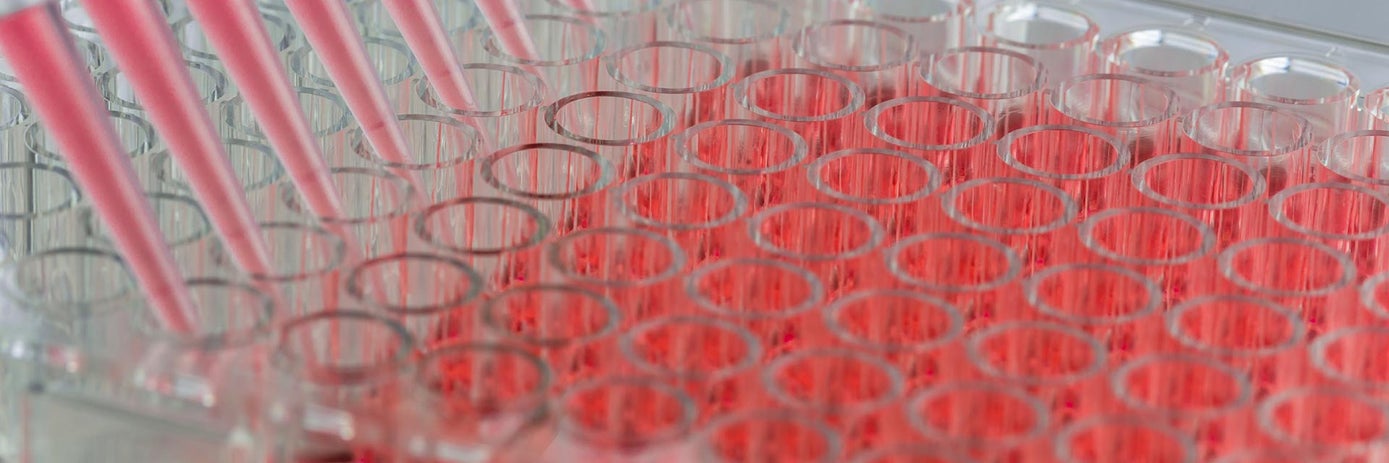

Avoiding biotin interference in AlphaLISA assays
AlphaLISA™ technology is a highly sensitive, easy-to-use, and reproducible method for detecting and quantifying molecules in various biological matrices. It works by using streptavidin-coated Donor beads and biotinylated anti-analyte antibodies. When these come into close proximity, the excitation of the Donor beads at 680 nM triggers an energy transfer cascade in the Acceptor beads, generating a sharp emission peak at 615 nM.
However, some cell culture media contain high levels of biotin, which can interfere with AlphaLISA and other assay technologies that rely on a streptavidin-biotin binding event for detection. High levels of free biotin in the sample matrix can result in a decrease in total counts, lower signal to background ratios, and reduced AlphaLISA assay detection limits.
To mitigate this, AlphaLISA biotin-free kits have been developed. This application note demonstrates the value of using AlphaLISA biotin-free kits to reduce the effects of biotin interference in sample and standard preparations.
For research use only. Not for use in diagnostic procedures.
To view the full content please answer a few questions
Download Resource
Avoiding biotin interference in AlphaLISA assays




























